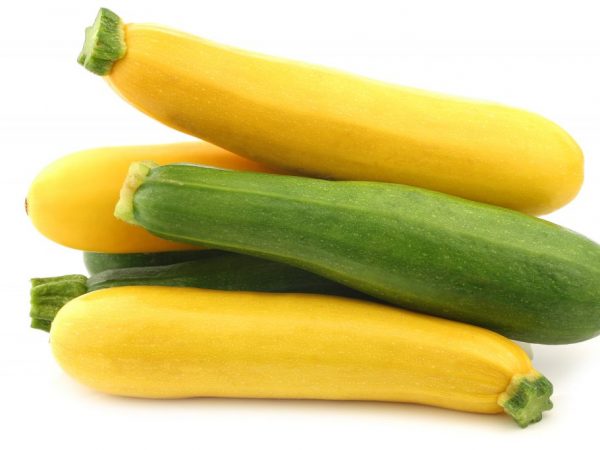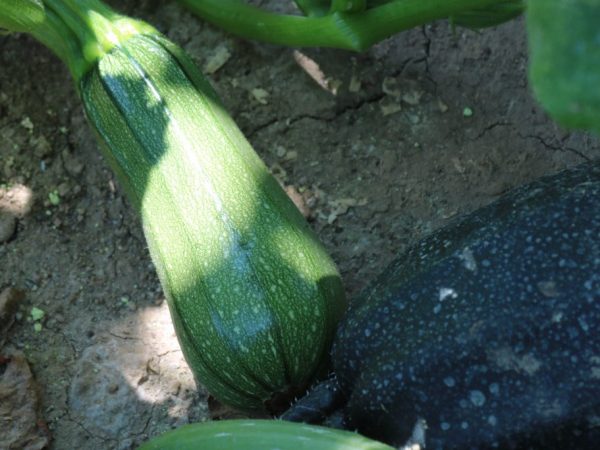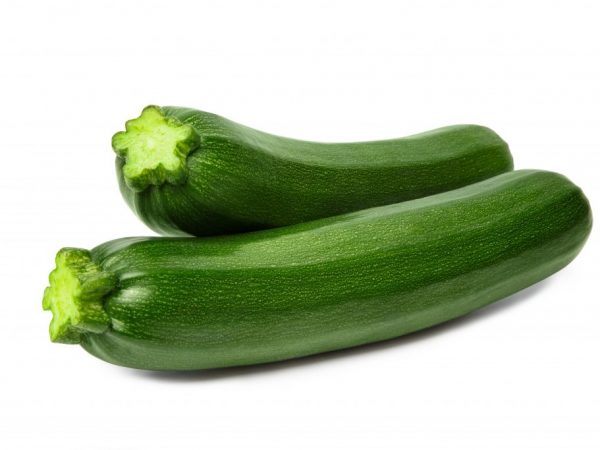The reasons for the appearance of bitterness in zucchini
Zucchini is a culture from the pumpkin family, which can often be found in garden plots. It is often used to prepare various dishes. Sometimes fruits with an unpleasant taste come across. Not all lovers of this vegetable know why bitter zucchini may appear among the harvest.

The reasons for the appearance of bitterness in zucchini
Causes of bitterness
Mistakes in caring for vegetables, common among gardeners, lead to a change in the taste of the culture.
Lack of watering
Moderate soil moisture allows plants to take all the substances they need from it. Zucchini are not too demanding for watering crops, but in the absence of the required amount of moisture, they begin the production process and accumulate nitrogen compounds and nitrates.
It is the increased nitrogen level that can cause the zucchini to turn out to be bitter.
The risk increases in these cases:
- if the weather is dry and sunny;
- when the plant is planted next to crops that draw a lot of moisture from the soil;
- if the zucchini are grown not in a personal plot, where watering can be regulated, but in the field.
To avoid such a problem as drying out the soil, a special irrigation regime is established. For two days in a row, the soil is intensively moistened, and the next two days there is a break. This will help the plants get used to receiving moisture regularly.
Pollination
There is a popular belief that all pumpkin seeds should grow in one place. However, experienced gardeners strongly recommend alternating between different species, planting other crops between them.
Pollination leads to the following negative consequences:
- decrease in yield;
- a change in taste - the appearance of bitterness;
- violation of fertility;
- decrease in the quality of seed.
If it is not possible to split the planting, sow a row of legumes or onions between crops, they will prevent cross-pollination.
Excess moisture
The reason why zucchini tastes bitter can be not only a deficiency, but also an excess of moisture. Especially if the water for irrigation is not settled and contains many impurities of heavy metals. This can be avoided, as in the case of insufficient watering, by setting the humidification mode and using only warm purified water.
Lack of light
Zucchini, like all pumpkin seeds, require a lot of air and light - they need this for good growth. If this crop is planted under trees or between large bush plants, it will experience stress from lack of sunlight, which will also lead to the appearance of bitterness.
Excess fertilizer

Excess minerals accumulate in vegetables
An excess of feeding is also often the cause of the bitterness of vegetables. In particular, this threatens those gardeners who prefer to apply natural fertilizers to the site:
- litter;
- humus;
- compost.
All of these feeds contain high levels of unrefined nitrogen compounds, as well as high concentrations of magnesium and potassium, and cause bitterness in zucchini. All the heavy metals in water and soil that impart such an unpleasant taste can accumulate in the fruit, making it unsafe to eat.
Improper storage
Failure to comply with the rules for storing such a vegetable also leads to the appearance of fruit bitterness.
Zucchini is harvested at two stages of fruit ripeness:
- dairy - these are young vegetables with a soft skin;
- mature - formed fruits that have reached full ripeness.
Milk zucchini should be stored between 0 and 3 ° C. In such conditions, vegetables will lie for up to two weeks. After this period, the fruit begins to wither and loses its taste - an unpleasant odor may appear, the fruit will begin to taste bitter, and lose its juiciness.
Vegetables harvested at full maturity can be stored for 3 to 5 months, retaining their quality. But if young fruits can be stored in the refrigerator, then a dry and cool pantry or basement with good ventilation is more suitable for mature ones.
It must be remembered that not all varieties of zucchini are suitable for storage, some can only be eaten fresh.
Accumulation of cucurbitacin
One of the reasons for the bitter taste in these vegetables is the accumulation of cucurbitacin. This substance is produced in response to the stress that plants experience when not properly grown.
The production of cucurbitacin can be prevented by the following methods:
- follow the rules for caring for the plant;
- water the crop on time;
- avoid deficiency or excess of fertilizers;
- plant a crop only in open ground, in a garden bed where there is no shade.
Diseases
Most often, zucchini is bitter due to fusarium wilting. This disease provokes a fungus. It negatively affects photosynthesis, metabolic processes and plant nutrition, which makes the culture stress.

The cause of bitterness in fruits can be a disease
The disease is not treated, but for its prophylactic it is advised:
- do not violate the rules of crop rotation;
- weeding regularly, removing weeds in the garden;
- carefully remove the remnants of the lashes after harvesting;
- if, nevertheless, the plants become infected, destroy all diseased bushes.
Weeds
In addition to improper cultivation of a crop, the reason for the appearance of a bitter taste in it may be wormwood growing on the site. Often, a weed appearing in close proximity to a vegetable can affect the taste of the crop from the entire bush.
To prevent this, you need to remove the weeds in the beds in time.
Eating
If the cause of the unpleasant taste was not a fungal infection of the bush, but a violation of the rules of care, then the zucchini are suitable for consumption.
But in many respects it depends on how bitter the zucchini is. Some vegetables acquire such a strong flavor that they simply cannot be used for food.
If the cause is a plant disease, its fruits may contain high levels of nitrates and toxic substances. Eating these vegetables can lead to poisoning - they are not recommended.
Ways to get rid of bitterness
If after harvesting it turned out that the fruits are bitter, you need to get rid of this unpleasant aftertaste before eating them. You can correct the situation by simply soaking the fruits.
This procedure is performed as follows:
- the fruits are peeled. You need to remove a thick layer of it, because often it is this area that accumulates bitterness;
- cut the peeled vegetables into slices or slices and soak in cold salted water for 20-25 minutes. Proportions: 1 tbsp. l. salt per 3 liters of liquid;
- when the soaking time has passed, the vegetables must be thoroughly rinsed under running water, and then they can be used for food.
You can also remove the bitterness by freezing the pieces before use. But it is worth remembering that after defrosting, the zucchini loses the elasticity of the fibrous joints.There is a possibility that when heat treated, the pieces will simply turn into porridge.
Proper storage of zucchini
To prevent the appearance of bitterness in zucchini, you need to be guided by the following storage rules:
- prevent vegetables from freezing;
- make sure that there are no sudden changes in temperature;
- do not store vegetables in high humidity.

